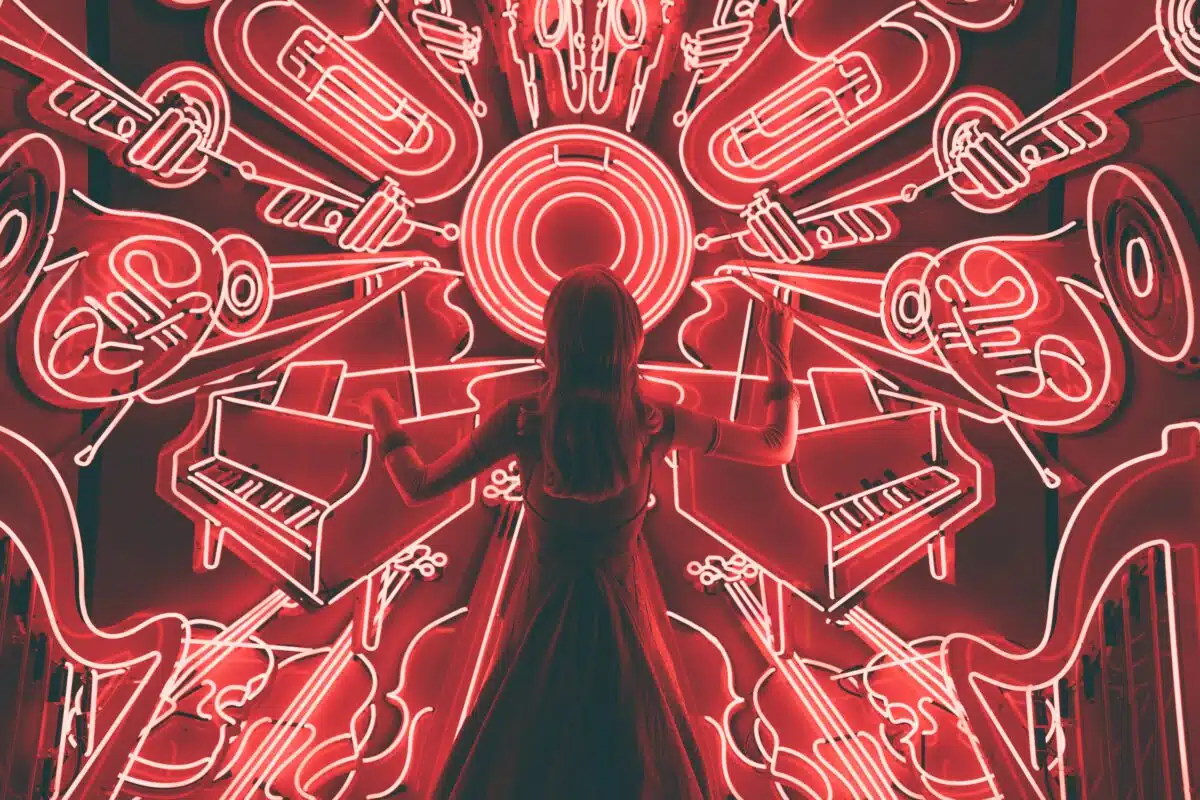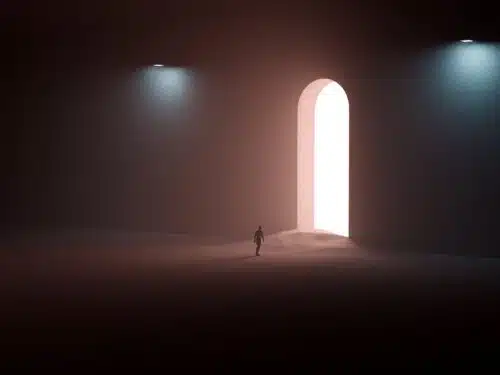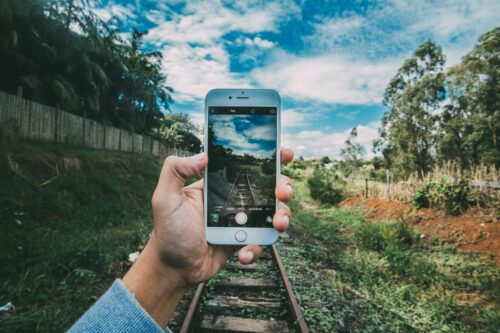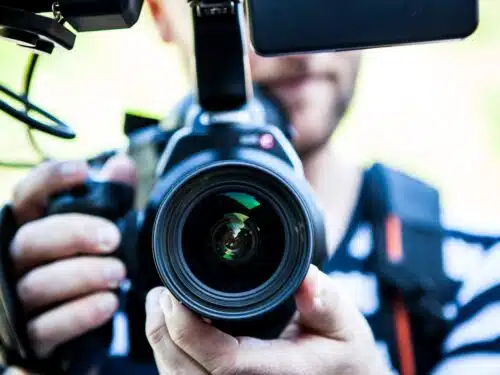Quick, hum the Jaws theme song. Even if you’ve never seen the movie, you probably remember that deep ba-dum, ba-dum, and the ominous feeling that comes with it. That just proves how music literally sets the tone for a video. It also presents video creators with some unique challenges. Music licensing for video and the accompanying copyright questions can be almost as anxiety inducing as that two note riff composed by John Williams.
Unless you are writing and recording a completely original piece of music for your video, you’re going to run up against the question of copyright. It’s not really a single question so much as a knot of interconnected concerns. Do you have a right to use this piece of music? How long does copyright last? Does royalty-free really mean free? How does music licensing for video actually work?
When it comes to copyright, the answer, according to Certified Copyright Manager, Barbara C Ingrassia is almost always, “It depends.” Fortunately, Ingrassia has the knowledge to elaborate. She teaches businesses, authors, and artists about copyright and digital content licensing. While she doesn’t provide legal advice, she does have a deep knowledge of how copyright questions affect creative projects. She lent her expertise to IdeaRocket for this guide.
What is copyright and music licensing for video?
Copyright, is a form of intellectual property law in the United States. It grants creators sole ownership of their work. That means in most cases, the creator of a song (or someone they’ve chosen to represent them) is the only one who can give permission for someone else to record, use, copy, or sell their music. If you want to use a song in your video, you have to get written permission, known as licensing, from the creator.
Contrary to popular understanding, the creator does not have to file a request with any government body for copyright to take effect. This protection exists from the moment the song is documented. If the composer has written it down or a performer has recorded it, that song is protected under copyright. Similarly, if you animate a character and put a 30-second clip online, someone else can’t decide to use that character design in their commercial. If they do, you can take legal action.
To protect yourself and your business from ending up on the wrong side of a legal battle, you should learn the basics of music licensing for video.
But aren’t some songs in the public domain?
The public domain is a tricky concept especially when it comes to music. “Original sheet music pre-1925 is in the public domain in the U.S.,” Ingrassia said. “No recordings will be in the public domain for many years.”
This brings up an important point. Although we think of music as recordings of sound, it is almost always written down first. In the United States, any sheet music published before 1925 is considered part of the public domain, which means anyone can use it for any purpose without payment or permission. However, recordings are under copyright for the lifetime of the author plus 70 years. Between that long timeframe and the most recent changes in copyright law, no recordings will be in the public domain until at least 2067, Inglessia said.
What does all this mean for you and your video soundtrack? Let’s say you want to use Beethoven’s 9th as background music for your video. The song is the public domain but that doesn’t mean you can use a recording of it performed by the Chicago Symphony Orchestra in 2015. The performer still owns the copyright to their recorded performance.
Notice that this recording of a public domain song is posted by the performers (The Chicago Symphony Orchestra). They have the copyright on the performance and don’t need to ask permission to post it on YouTube. We are allowed to share it here, because we’ve provided a direct link that credits the creator.
How can I get permission to use a song?
As mentioned above, most music involves at least two creators: The person who wrote the song and the person who performed the song. In some cases, more people are involved. For example, a given song might have a composer, who wrote the musical score, and a lyricist who wrote the words. You’ll need permission from everyone involved to license a song.
Fortunately, professional songwriters and music publishers belong to a handful of performing rights societies empowered to grant permission and collect payments. You can contact these societies to find out who owns the song that captured your interest. Then, work with the society to get music licensing for videos.
Societies and music licensing companies:
If you can’t find the song on a professional society database, try contacting PRS for Music (formerly the Performing Rights Society).
Contact the rights holder and tell them who you are and how you would like to use the song. You will likely need to pay a fee. Make sure you understand what rights you are buying. The agreement may limit how you can use the song. For example, you’re allowed to use it in a video on YouTube but not in a feature-film. You may also be expected to pay a royalty, a small fee each time the song is played. If your YouTube video is viewed 10,000 times, your royalty costs could add up quickly.
What are common types of licenses?
There are several types of music licenses depending on how the music will be used and distributed. The most important types when it comes to music licensing for video are a master license and a synchronization or synch license.
A master license allows you to use a pre-recorded version of a song in your video. You cannot re-record the song or do any substantive edits. Similarly, a synchronization license grants you permission to use the song in visual media like a commercial, tv show or movie.
For both licences, pay attention to the terms of the agreement. It may include time and channel restrictions. Time restrictions tell you how long you hold the rights, while channel restrictions dictate where the music can be used. For example: “1-year web” would give you the right to use the music for one year in videos shared on the internet. You would not be able to use the same song in a broadcast commercial.
Your cost for these licenses will vary depending on where it will be played, how many people might hear it, type of media in which the song will be used, how the song will be used (background music, theme song, end credits etc.), and the experience or popularity of the creator. In general, the more people who will hear it and the more prominently the song is featured, the more you will pay for the license to use it.
What about royalty free music?
If you want to avoid the trouble and expense of licensing music you might think royalty free music is a better solution. There are several websites that offer “royalty free music” for creators.
Don’t be confused, the word free in this context means that you won’t have to pay a royalty for every use of the song. However, the rights still cost something. You will likely have to pay a one-time licensing fee. It is also your responsibility to abide by the rules and regulations laid out in the license.
“Assume a work is copyrighted until you can determine otherwise,” Ingrassia said. “Always read the fine print in contracts and licenses. On a website, scroll down to find and read the terms before you click “I Agree.”
Audioblocks charges a monthly fee to allow download of a certain number of song or audio files per month. As their clearly written licensing agreement explains, all users get the same rights regardless of their payment tier.
By contrast, Tribe of Noise offers several licensing tiers. The amount you pay per song determines what you are allowed to do with that song. They also manage Free Music Archive, where songs are both free to download and (theoretically) able to be used in any project. But be careful, different songs have different licensing terms and you can easily get into trouble unless you read the license guide carefully.
A creative commons license is a good start, but not foolproof. Creative Commons has no registration process, so anyone can claim a song has a CC license. It’s always a good idea to check with the creator directly.

What if I hire someone to make music for me?
The best way to minimize copyright questions is to commission a unique piece directly from an artist. That is essentially what movie studios do when they hire composers to develop soundtracks for their movies.
When using this method, make sure you fully understand your agreement with the creator. On sites like Fiverr you, as the buyer, are granted all rights to the delivered work unless otherwise specified by the creator. This is called a “Buy Out.” The creator may choose to charge an additional fee for a commercial use license. If you plan to use the song in more than one video, or think you might want to in the future, make sure you have the right to do so.
If you choose to work directly with an artist, you might want to ask a copyright attorney to prepare and review your contract. The added expense now could save you thousands in court fees later.
What else should I know about music licensing for video?
Even a super short clip can cause copyright headaches if you don’t have the proper permissions. Sampling, that is taking sections of music or sound recording and using them in another piece, is never legal. “The U.S. Copyright Law doesn’t include numbers for what’s ok to use without permission,” Ingrassia said.
Of course, we’ve all heard DJ’s and rap artists who remix pieces of other songs. Several have gone to court over it. Others have settled out of court. If you want to avoid a legal battle all together, you’re better off getting the creator’s express permission to use their work.
Who can help me navigate all this?
By now your head might be spinning with all of these copyright questions, but they shouldn’t scare you away from using music in your videos. Just make sure you read all agreements carefully and fully understand what rights you are buying when you pay for a piece of music. If you need help learning more about copyright rules, contact Barbara Ingrassia or reach out to a copyright lawyer.
When you work IdeaRocket, our video project experts help you acquire the rights to songs. We can even work with composers to develop original scores. Let us help you find the right music for your video project.



